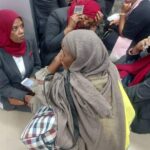Since the military coup in October 2021, Sudanese civil society has faced substantial challenges in maintaining its freedom to operate. Various rights groups, community-based organizations (CBOs) focused on women and youth, and pro-democratic movements have actively opposed the coup for over a year. Nationwide protests saw millions of Sudanese citizens demanding an end to the military rule. The response was harsh, with hundreds of activists being detained, tortured, and killed. Professionals such as lawyers, students, journalists, and doctors faced prosecution, threats, and in some cases, were forced to flee the country. These continuous attacks have severely drained the already limited resources of Sudanese civil society. After the Sudanese revolution and the fall of Bashir’s regime, there was a brief period of freedom for about two years, which was abruptly ended by the military coup.
On April 15, 2023, conflict erupted in Sudan—a situation that many civil society groups, especially women’s organizations, had warned about. Despite early warnings from local women and youth groups, international and local actors did not take their concerns seriously. In the initial months of the conflict, many civil society groups and activists focused on personal safety and securing safe routes for their families and team members. Simultaneously, they worked through highly effective networks to coordinate the evacuation of fellow activists and thousands of civilians trapped in conflict zones. Threats and intimidations against local activists increased continuously, hundreds were detained, dozens were killed. This report is shedding the light on the struggles and resilience of Sudanese CSOs under the world largest humanitarian and human rights crisis. We have interviewed more than 80 activists and leaders of CSOs across Sudan in the last year. Their testimonies expressed high levels of risks and amazing courage.



